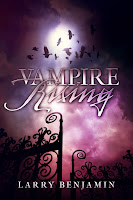The Making of a Book Trailer
 "Guerrilla
filmmaking is driven by passion with whatever means at hand."—Mark Hill, Yukon Film Commission Manager
"Guerrilla
filmmaking is driven by passion with whatever means at hand."—Mark Hill, Yukon Film Commission Manager Having written four books, I’m fairly confident in my voice
but I knew I’d have to rely on images and actions, rather than words, to tell
the story. The story’s main premises are simple enough: “history repeats
itself,” and “people are people.” The story is told in certain colors: purple
and gray and silver and black and white are the predominate colors. The main
elements are an elaborate wrought iron gate and mockingbirds. We managed to
capture these for the book’s cover. But how could I replicate that on video?
Having written four books, I’m fairly confident in my voice
but I knew I’d have to rely on images and actions, rather than words, to tell
the story. The story’s main premises are simple enough: “history repeats
itself,” and “people are people.” The story is told in certain colors: purple
and gray and silver and black and white are the predominate colors. The main
elements are an elaborate wrought iron gate and mockingbirds. We managed to
capture these for the book’s cover. But how could I replicate that on video?
I started with a story board—I knew I wanted to capture key
scenes from the book, rather than using the trailer to recap the book’s
synopsis—after all readers could get that from reading the book’s back cover,
or the blurb on Amazon.
I decided on the scenes I wanted to capture from the book,
then I tried to figure out what the key element of each scene would be, because
the image you saw on screen would be a manifestation of that. Then I had to
decide if there would be text or sound, or music, to enhance the scene.
Thanks to my day job in corporate communications, I’ve done
video which quickly made me realize two things: I could do this—make a video, I mean—my vision is sure and true;
and, two, while I envisioned a Hollywood-style block buster video, I did not
have a Hollywood style blockbuster budget. Fortunately my mantra has always
been “think big, scale fast.” And I’m fortunate to be surrounded by talented
people who believe in me. So when Carolyn Fillmore, read Vampire Rising and told me how much she loved it, I mentioned I
wanted to create a book trailer. I showed her the storyboard I’d created and
she said, “If you’re willing to let me learn as I go, I can create a guerilla
style video.” I jumped onboard, though at the time, I had no idea what a
guerilla style video was. Thanks to Google, ignorance was quickly banished:
“Guerrilla filmmaking
refers to a form of independent filmmaking characterized by low budgets,
skeleton crews, and simple props using whatever is available. Often scenes are
shot quickly in real locations without any warning, and without obtaining
permission from the owners of the locations.”
The book trailer produced by Middle Child Productions, which
was borne of our collaboration, combines stock photo and video clips, with
custom photos and live action video. It took weeks to find the right stock photos
and video clips and for some scenes we had to stage our own photo and video
shoots. A key scene represents the first time Barnabas sees Gatsby; Gatsby
walks towards him with a martini in his hand. Unable to find a suitable stock
photo, we shot the scene in the library of our house with Caroline’s husband,
Steve, lending his hand. To capture that scene, Carolyn took 110 photos. And the opening scene with the hands burying a
crucifix was shot in our front yard.
When Carolyn showed the video to some beta viewers and asked
them what they thought the book as about they guessed it was some sort of history
book. At first we were disappointed but I quickly realized that was exactly how
we wanted the story to be perceived; I wanted it to seem as if it was something
that had happened, or could happen—if we weren’t careful. After
all in the prologue I wrote:
“The words written
here are less a story than a prophesy. Or maybe they’re a prayer. Whatever it
is, you need to understand that what is written here is, like Moses’ tablets,
written in the hand of God, accurate, and true because it could not be
otherwise.”
Originally the video was a mix of black-and-white and color but
Carolyn felt the story called for black and white. The only spoken text is a quote from the book, which
indicates both trust and surrender, and which is both a nod to Bram Stoker’s Dracula, and a reference to the last
words Jesus is said to have spoken on the cross. It is repeated throughout the two
minute video as a kind of refrain.
There were a few quotes and some descriptions that I felt were
crucial to conveying the story. But because we didn’t have a budget for
voiceover talent, we opted to add the text onscreen using a font that was
religious in style and which matched the font used in the headings in the book.
The addition of music and monks chanting, gave the trailer the feel of a silent
movie. The idea of telling a story that takes place in the future, while
referencing an old movie style really appealed to us.
Now that I’ve explained our approach and how we executed the book trailer, watch it below. Feel free to post a comment below telling me what you think of it or if you have questions for me, or Middle Child Productions.
Learn more about Vampire Rising here.



Comments
Post a Comment